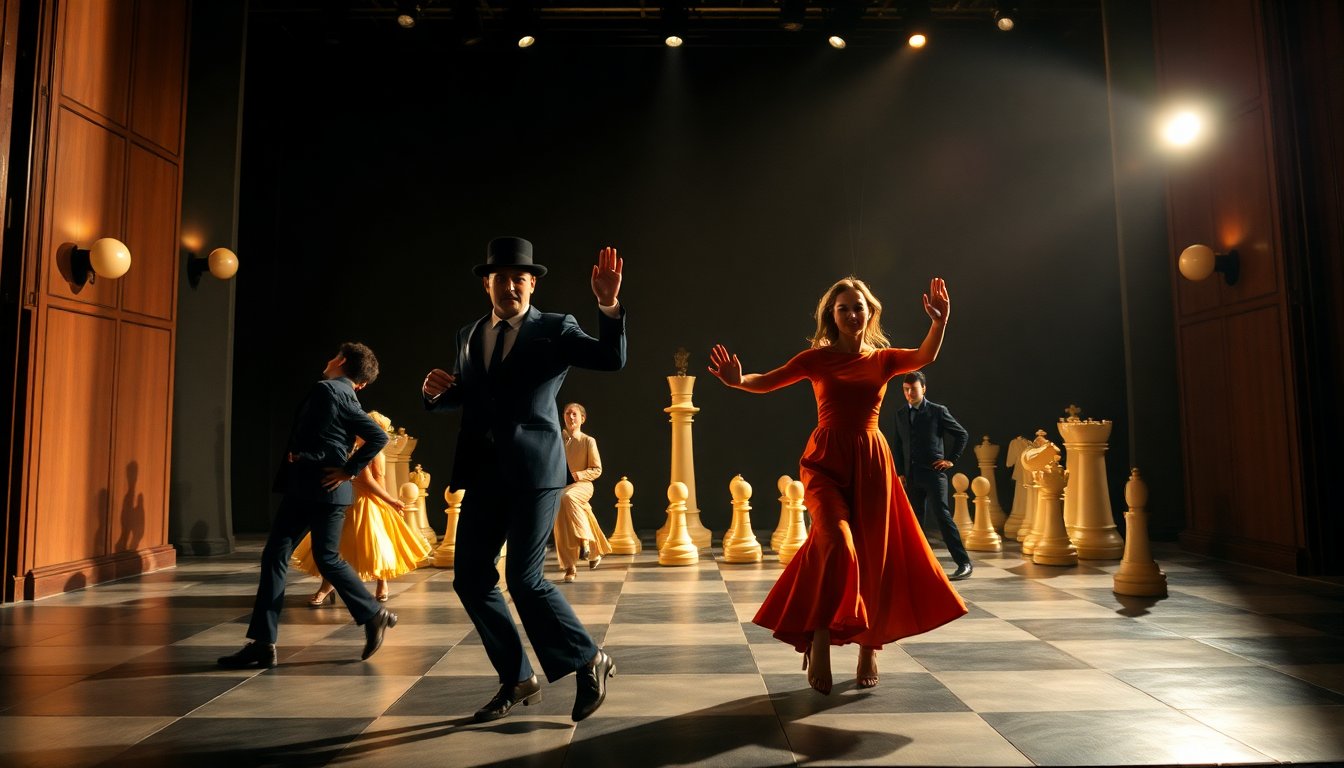Table of Contents
After a lengthy hiatus, the acclaimed musical Chess has made its comeback to Broadway, showcasing a vibrant revival that captivates both fans and newcomers. This reimagining features Lea Michele, whose powerful voice aims to breathe new life into a production that struggled in the 1980s. With a mix of catchy tunes and dramatic storytelling, the show invites audiences to experience the thrill of chess intertwined with the complexities of Cold War politics.
Originally premiering during a turbulent time in theatrical history, Chess faced challenges in finding its footing. However, this new iteration seeks to rectify that by embracing both its musical roots and the absurdity of its narrative. The revival cleverly balances humor with poignant moments, drawing audiences into a world where each chess match carries stakes beyond mere victory.
Key elements of the revival
This revival of Chess has garnered attention for its bold reinterpretation of the source material. The production cleverly weaves in contemporary commentary, often using metatheatrical devices to engage the audience. The character known as the Arbiter, portrayed by Bryce Pinkham, serves as a witty narrator, guiding spectators through the intricacies of the plot while simultaneously poking fun at the show’s own quirks.
Musical highlights and performances
The heart of any musical lies in its score, and Chess does not disappoint. The iconic melodies, crafted by the legendary duo of Benny Andersson and Björn Ulvaeus, resonate throughout the theater, showcasing unforgettable numbers like “Someone Else’s Story” and “I Know Him So Well.” Lea Michele, alongside co-stars Nicholas Christopher and Aaron Tveit, delivers vocal performances that elevate the material, even amid a narrative that sometimes falters.
Critics have noted the electrifying energy brought to the stage by the cast. Michele’s rendition of “Anthem” is particularly noteworthy, showcasing her ability to convey deep emotion while delivering high notes with precision. Despite the unevenness of the book, the performers manage to shine through, proving their mettle as leading talents on Broadway.
Narrative complexities and challenges
While the musical’s score is undeniably strong, the book—written by Danny Strong—has faced scrutiny. Some reviewers have pointed out that the narrative can become convoluted, with elements of the romantic plots and the overarching Cold War theme sometimes feeling disjointed. The character of Florence, played by Michele, is occasionally seen as underdeveloped, detracting from the story’s emotional weight.
Critical reception and reflections
As with any revival, Chess has received mixed reviews. Some critics praise the show for its ambitious attempt to modernize the narrative, while others lament the lack of clarity and focus in storytelling. The juxtaposition of high-stakes chess matches with political tensions adds layers to the production but can lead to a sense of overwhelming complexity.
Despite these critiques, the revival has successfully reignited interest in Chess, proving that the allure of its music and themes still resonates with audiences. The production’s ability to balance humor and drama reflects a deeper understanding of the material, allowing for both entertainment and reflection.
As Chess takes to the Broadway stage once more, it does so with a boldness that captures the imagination. Through powerful performances, a rich score, and an irreverent take on its narrative, this revival is a testament to the musical’s enduring legacy. Whether a longtime fan or a newcomer, the experience promises to be both thrilling and memorable.


